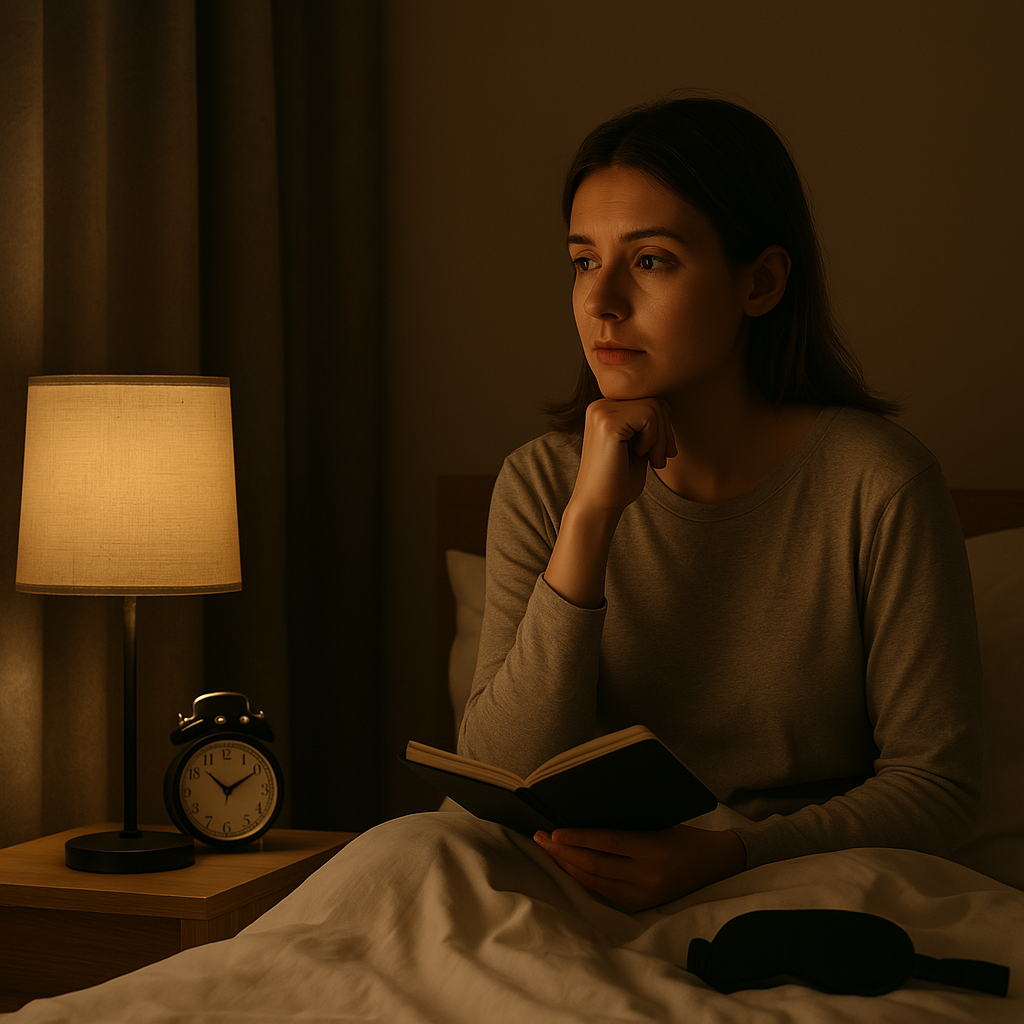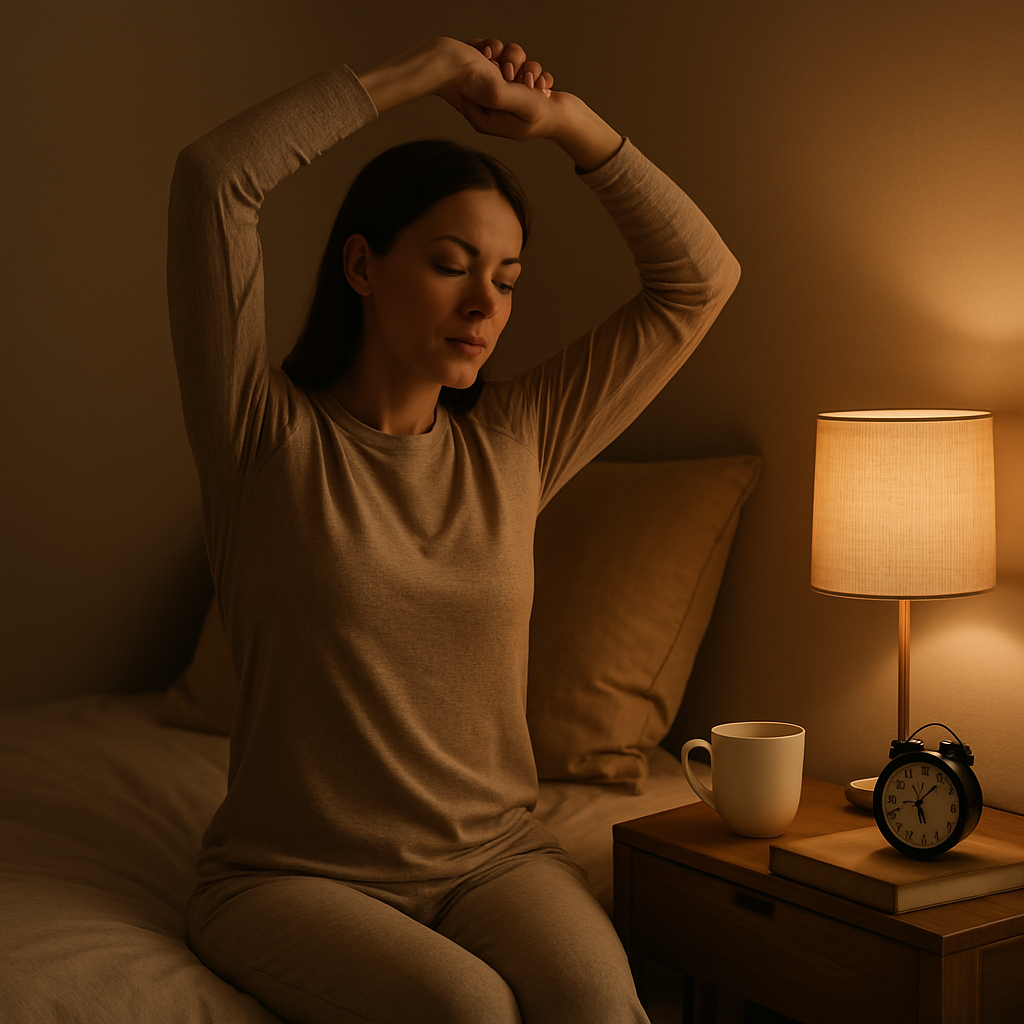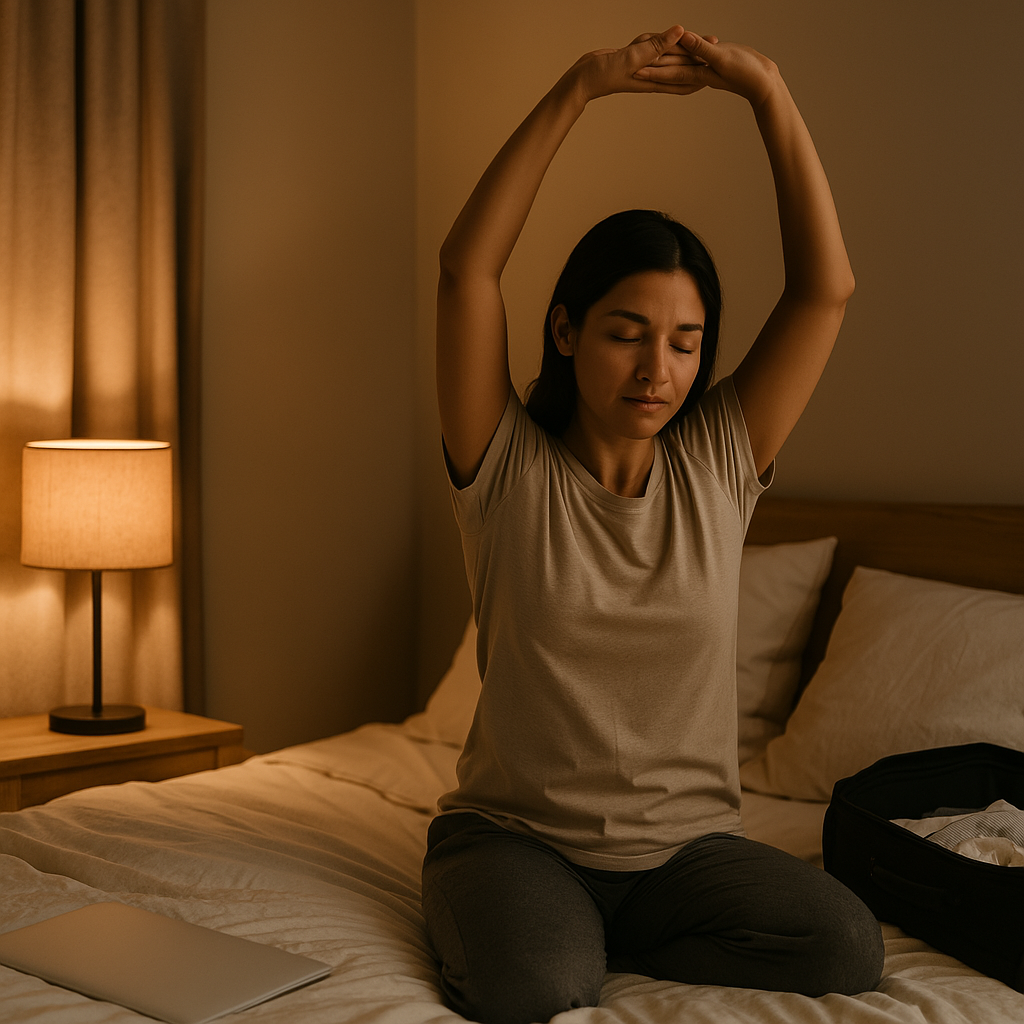Sometimes sleep isn’t linear — and that’s okay.
You’re Doing the Work… So Why Aren’t You Sleeping?
You’ve built a routine.
You’ve dimmed the lights, set a schedule, blocked the noise, and even skipped the evening scroll.
And yet… you’re still struggling to fall asleep. Or waking up in the middle of the night. Or feeling foggy in the morning.
You’re not failing.
This is just part of the process — and it’s more common than you think.
In this post, we’ll explore the hidden reasons your sleep still isn’t quite “there,” and what you can do to break through the plateau.
Progress Isn’t Always Perfect
First, let’s get this out of the way:
You’re allowed to be doing “everything right” and still not feel amazing yet.
Why? Because sleep is layered.
There are surface-level changes (lighting, screens, routine)… and then there are deeper ones — like hormones, nervous system patterns, and stress.
You’re building a foundation. And like any transformation, it takes time.
Hidden Reasons You May Still Be Struggling
Let’s look at some often-overlooked factors that may be disrupting your sleep — even if your habits are strong.
🌡️ Your Body Temperature Is Off
Your core temperature needs to drop for deep sleep. If your room, bedding, or pyjamas are too warm, your body resists the transition.
Try this:
- Cool your room to 16–19°C
- Use breathable, moisture-wicking sleepwear
- Take a warm shower 1 hour before bed — the drop in temp after helps trigger sleep
🧠 You’re Going to Bed Too Early (or When You’re Not Sleepy)
Sometimes, “being good” about bedtime backfires. If you go to bed too early, your body may not be ready, which leads to tossing, frustration, and clock-watching.
Try this:
- Stay up until you’re sleepy, not just tired
- If you can’t fall asleep after 20–30 mins, get up, do something calming (like reading or stretching), then try again
💭 Your Brain Is Still Processing the Day
Even with a great wind-down routine, your thoughts may still be active — especially if you’re stressed, anxious, or emotionally overloaded.
Try this:
- Do a “brain dump” journaling session before bed
- Use 4–7–8 breathing (inhale 4, hold 7, exhale 8)
- Avoid problem-solving in bed — tell your brain: “Not now, I’ll handle it in the morning.”
💡 You’re Still Getting Too Much Light (Too Late)
Even brief exposure to bright light late in the evening can suppress melatonin production — especially from bathroom lights or screens.
Try this:
- Use only soft, amber lighting after 8PM
- Put your sleep mask on before you’re actually in bed — signal your brain that “day is done”
- Avoid LED-rich light from mirrors, phones, or overheads
🎯 Our 3D Sleep Eye Mask is contoured for comfort — and blocks out 100% of disruptive light.
🔄 You’re Over-Correcting (and It’s Making You Stressed)
Yes — trying too hard to fix your sleep can sometimes create more stress… which is the very thing blocking it.
Try this:
- Let go of perfection — sleep is flexible
- Focus on consistency, not control
- Instead of “fixing” your sleep, ask: “How can I support rest tonight?”
What to Do When You Hit a Sleep Plateau
Sleep plateaus are common — and temporary. But here’s how to gently move through one:
- Stick with your routine. Even if it’s not “working” yet — your body is adjusting behind the scenes
- Make one small change. Don’t overhaul your routine — just tweak one thing (temperature, lighting, wake-up time)
- Take the pressure off. Focus on rest over results. Trust that your body will catch up
Use Tools That Reinforce Rest (Not Control)
Sometimes it helps to hand the reins over — to trust the process, lean into ritual, and let your tools support the work.
The Fall Asleep Faster Kit was created for exactly that:
To give your brain and body a nightly cue that it’s time to switch off.
✔️ A 3D Sleep Mask to block all light
✔️ Noise-Cancelling Earplugs to reduce background stimulation
✔️ A portable, repeatable ritual that signals rest
No pressure. Just calm.
Final Thought: Your Body Wants to Sleep
If you’re reading this, you care. You’re trying. You’re showing up for your sleep — and that matters.
Don’t give up just because the results are taking longer than you hoped.
Your body wants to sleep. Your nervous system wants to restore. Your rhythm wants to reset.
Let it happen — gently, consistently, and without expectation.
You’re closer than you think.
💬 Frequently Asked Questions (FAQs)
Why am I still waking up in the middle of the night?
It’s common, especially during stress or hormonal shifts. Try to reduce light exposure, avoid alcohol, and use earplugs to block unpredictable noise.
What if I can’t “stop thinking” at night?
Do a brain dump before bed. Write out anything unfinished or worrying — it helps offload mental loops and calms your system.
Is it bad if I go to bed at different times each night?
Occasionally? No. But long-term irregularity can confuse your circadian rhythm. Try to keep a consistent wake-up time instead — it’s more impactful.
Can over-focusing on sleep make things worse?
Yes — sleep anxiety is real. That’s why Slumberite promotes calming routines, not strict rules. Focus on cues, not control.
Should I start over with my sleep routine?
Not necessarily. Just simplify. Remove friction. Start small again — even just your eye mask + earplugs, at the same time every night.



Leave a comment
This site is protected by hCaptcha and the hCaptcha Privacy Policy and Terms of Service apply.